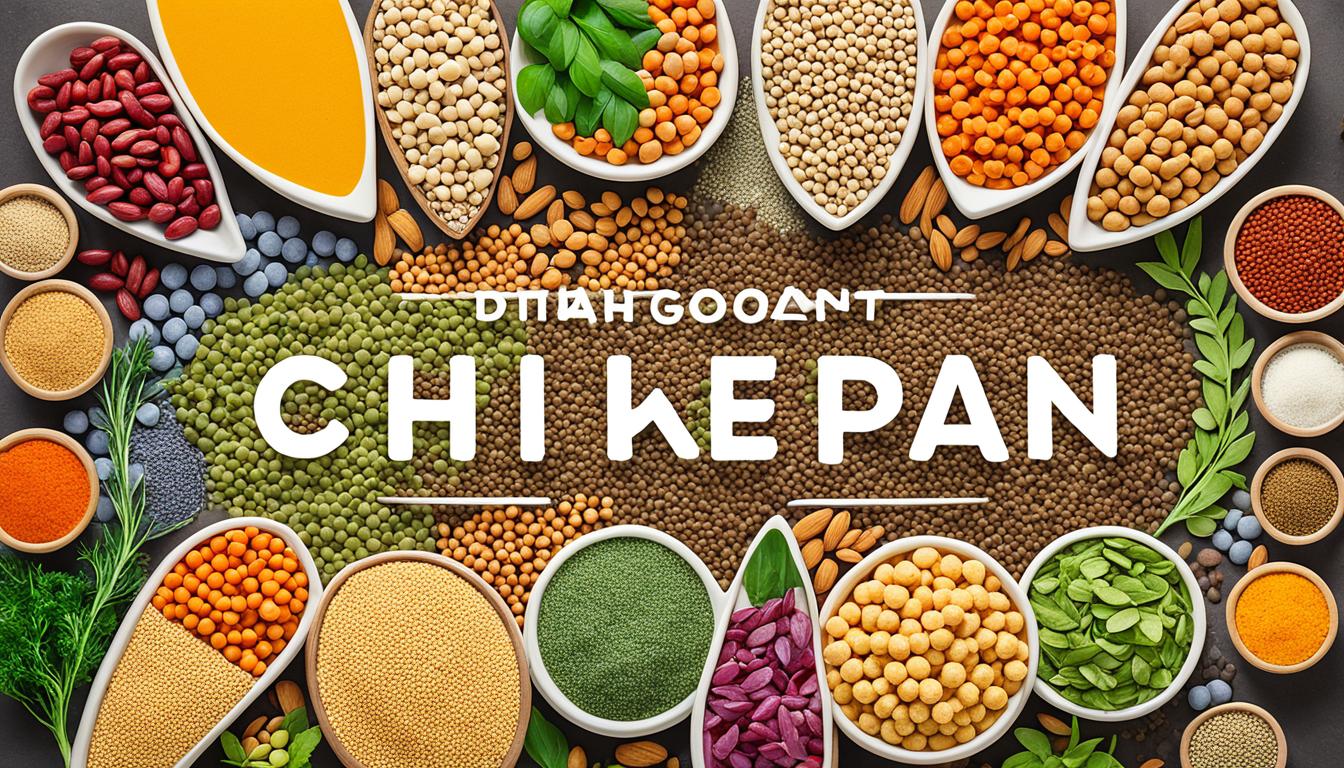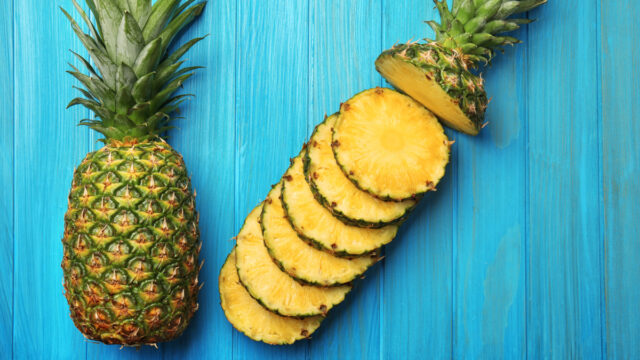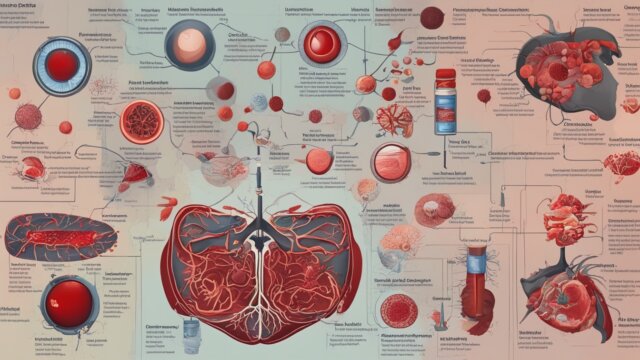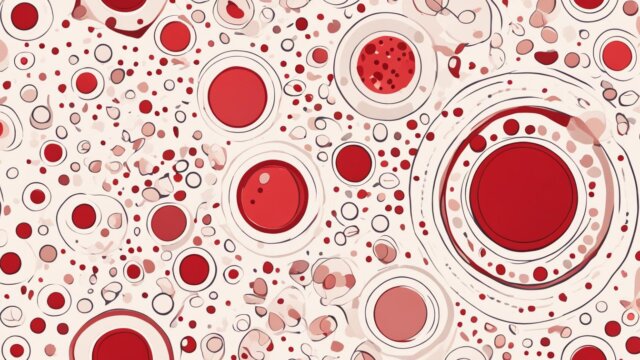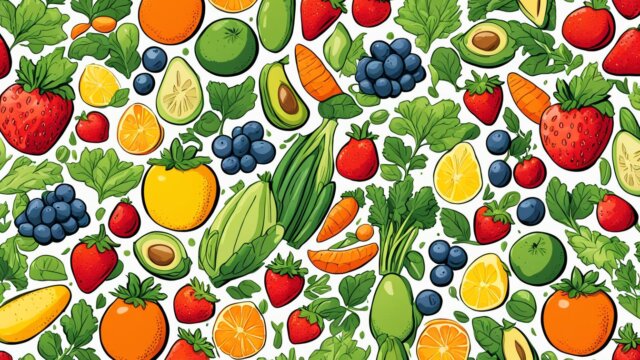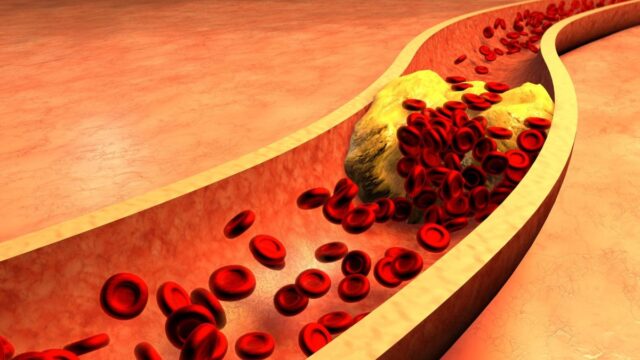FTC disclaimer: This post may contains affiliate links and we will be compensated if you click on a link and make a purchase.
Did you know 31% of Americans now eat more whole-plant foods? This shows a big move towards eating healthier and being kinder to the planet. People are really into plant-based protein because it’s good for them and the earth.
Plant-based proteins are great for building muscles and keeping you healthy. They come from veggies, beans, nuts, seeds, and grains. These foods give you the protein you need and lots of other good stuff like fiber and anti-inflammatory properties. Plus, they’re better for the planet than animal-based proteins.
Key Takeaways
- Plant-based proteins are getting more popular, with 31% of Americans eating more whole-plant foods.
- They help with muscle growth and make you feel good overall.
- They’re also better for the planet than animal-based proteins.
- Adding different plant-based proteins to your meals makes cooking fun and tasty.
- Plant-based protein powders are easy to use and perfect for busy days.
What is Plant-based Protein?
Plant-based protein comes from plants, not animals. It includes veggies, grains, legumes, nuts, and seeds. Foods like beans, lentils, tofu, tempeh, quinoa, almonds, and pumpkin seeds are good examples.
Plant-based diets give you enough protein and amino acids you need. But vegans might need vitamin B12 supplements since it’s mostly in animal foods. These diets are good for your health and the planet too.
Some plant proteins are not complete because they miss some amino acids. But mixing different plant proteins can fix this. Soy and quinoa are complete proteins, meaning they have all the amino acids you need.
Adding many plant-based proteins to your meals helps you get enough protein and live healthily.
“Plant-based protein sources offer a wide range of essential nutrients and can be part of a balanced, healthy diet.”
Benefits of Plant-based Protein
Health Benefits
Choosing plant-based proteins over animal proteins can be good for your health. The International Food Information Council’s 2022 Food and Health Survey found 12% of Americans eat plant-based. Also, 31% of Americans eat more whole-plant foods, showing more people like plant-based proteins.
This move to plant-based proteins is linked to staying at a healthy weight, lowering type 2 diabetes risk, and living longer. A 2019 study showed people on vegan and vegetarian diets get enough protein and amino acids.
Plant-based proteins can lower the risk of heart disease, stroke, obesity, and some cancers. They have less saturated fat and cholesterol than animal products. They also give you fiber, vitamins, and minerals, which are good for your health.
Environmental Benefits
Switching to a vegan diet can cut your carbon emissions by up to 50%. A 2019 study found going vegan can reduce your greenhouse gas emissions by half. Plant-based proteins also use less water than animal proteins, like beef and chicken.
The U.N.’s 2019 climate change report suggested eating less animal protein to help the environment.
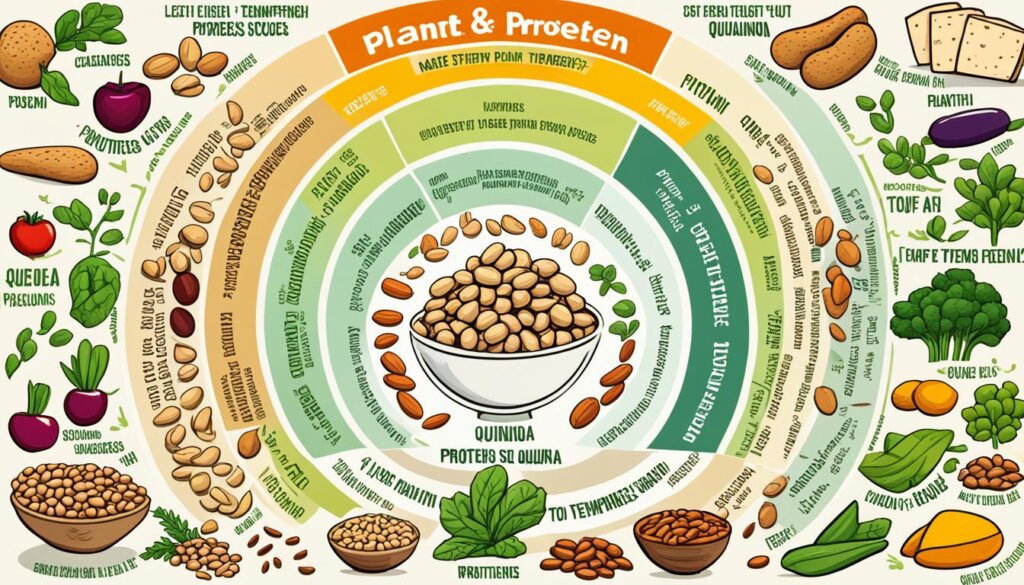
Adding more plant-based proteins to your diet helps you and the planet. It reduces disease risk and cuts down on greenhouse gas emissions.
Plant-based Protein Sources
Plant-based protein has many tasty and healthy choices. High-protein plant foods like beans, lentils, and nuts are great for a healthy life.
Some foods, like soybeans and quinoa, have all the amino acids we need. You can also mix foods like rice and beans to get all the amino acids. Plant-based protein powder from peas or almonds is great for extra protein.
Plant-Based Protein Source | Protein Content per Serving |
|---|---|
Seitan | 25 g per 3.5 oz |
Tofu, Tempeh, Edamame | 12-20 g per 3.5 oz |
Lentils | 18 g per cooked cup |
Beans (Kidney, Black, Pinto) | 15 g per cooked cup |
Nutritional Yeast | 8 g per 1/2 oz |
Hemp Seeds | 9 g per 3 tbsp |
Green Peas | 9 g per cooked cup |
Spirulina | 8 g per 2 tbsp |
Amaranth and Quinoa | 8-9 g per cooked cup |
Ezekiel Bread | 8 g per 2 slices |
Soy Milk | 6 g per cup |
Oats | 5 g per 1/2 cup dry |
The table shows how much protein is in different high-protein plant foods. Adding these foods to your diet can make it more balanced.
These plant-based protein sources are also full of fiber and vitamins. Eating a variety of these foods can make your diet better overall.
Plant-based Protein: Powering Your Healthy Lifestyle.
Adding more plant-based proteins to your meals is great for your health. Plant-based protein foods give you fiber, antioxidants, and healthy fats. They also have amino acids for building muscles. Eating whole, less processed plant-based protein foods helps your body get what it needs to stay healthy.
Studies show that plant-based proteins are better for you than animal proteins. They have less saturated fat and can lower the risk of heart disease and diabetes. Choosing plant-based proteins is also good for the planet because they have a smaller environmental impact.
It’s important to eat a variety of high-protein plant foods. Legumes like beans, lentils, and chickpeas are full of protein, fiber, and vitamins. Nuts and seeds, such as almonds and chia seeds, are great for protein and healthy fats. Tofu, tempeh, and seitan are also great for getting plant-based protein. Whole grains like quinoa add protein and carbs to your meals.
Eating a mix of plant-based protein foods ensures your body gets all the amino acids it needs. Plant-based protein supplements, like pea or hemp powder, can also help increase your protein intake.
Choosing plant-based proteins is a smart move for your health and the planet. They offer many nutritional benefits and are better for the environment.
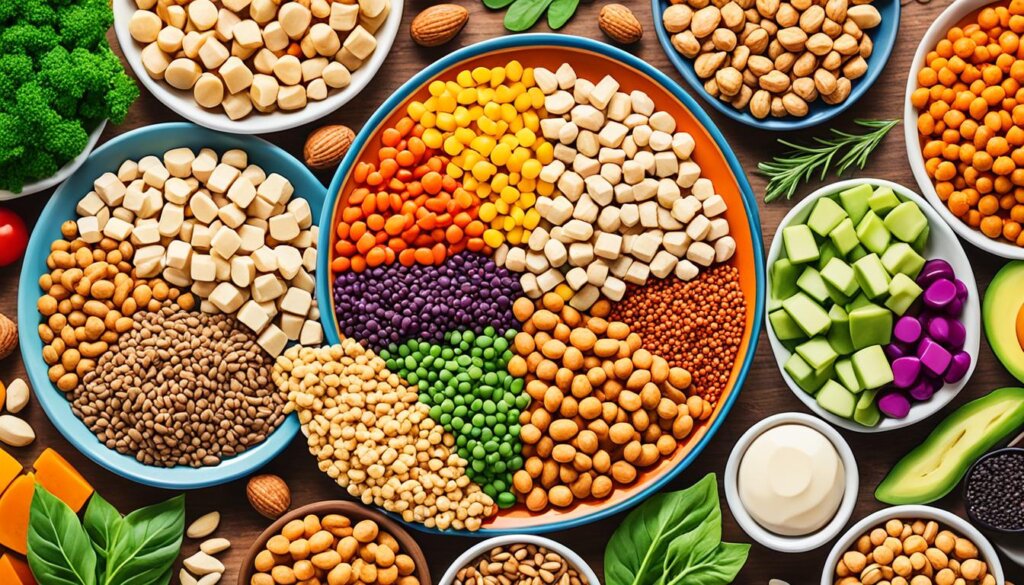
Almond Protein: A Nutritious Choice
Almonds are a great choice for a healthy lifestyle. They are full of protein, healthy fats, fiber, magnesium, and antioxidants. Adding them to your diet can help with muscle repair, bone and heart health, and cell protection. You can put almonds in smoothies, oatmeal, salads, and more to make your meals more nutritious.
Almonds are high in fiber. A small serving has about 4.5 grams of fiber. This fiber is good for your digestive and heart health and helps with weight control. Eating foods with a low glycemic index, like almonds, can also lower blood sugar and bad cholesterol. This can reduce the risk of diabetes and heart disease.
Almonds have healthy fats called monounsaturated fatty acids (MUFAs). A small serving has about 11 grams of these fats. These fats can lower bad cholesterol, making almonds good for your heart. They also have vitamin E, which can protect your brain from getting worse over time. A study showed that eating almonds every day helped middle-aged and older people’s memory and learning.
Eating almonds in moderation is important as part of a balanced diet. Experts say not to get more than 35% of your daily calories from protein. A good amount of almond protein is about 15 grams twice a day. But, some people might be allergic to nuts and could have a severe reaction.
Almond protein is a great choice for your health and well-being. Adding these nuts to your meals can give you a tasty and protein-rich boost.
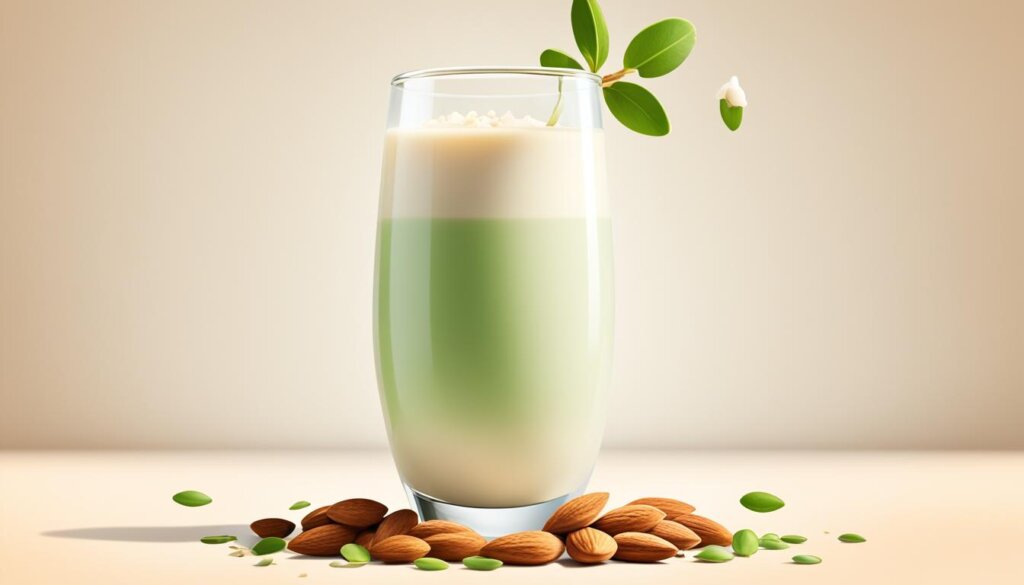
Nutrient | Amount per 1/4 cup serving |
|---|---|
Protein | 6 grams |
Fiber | 4.5 grams |
Monounsaturated Fatty Acids (MUFAs) | 11 grams |
Vitamin E | 9 milligrams |
“Almonds are a good source of protein and contain all essential amino acids.”
Almonds are a great plant-based protein that can help your health and fitness. They are full of nutrients and can be a good part of a balanced diet.
Pumpkin Seed Protein: Packed with Benefits
Pumpkin seed protein is a nutrition powerhouse. It’s full of health benefits. This plant-based protein is high in protein, vitamins, minerals, and antioxidants.
Pumpkin seed protein has a great nutritional profile. It has all nine essential amino acids. An ounce gives you 8.5 grams of protein, similar to pumpkin seed protein powder. It’s also full of fiber, offering about 5 grams per ounce with shells.
This protein is also packed with omega-3 fatty acids. These fats are good for the heart, immune system, and hormone balance. They also help reduce inflammation. Plus, it has a lot of magnesium, which is good for the heart, bones, and blood sugar.
Many companies mix pumpkin seed protein with other plant-based proteins, making the protein more balanced and complete. These blends offer a full plant-based protein option.
Pumpkin Seed Protein Nutrition Facts | Per Ounce Serving |
|---|---|
Protein | 8.5 grams |
Fiber | 5 grams (with shells) |
Omega-3 Fatty Acids | Supports heart health, immune system, and anti-inflammation |
Magnesium | Supports heart health, bone health, and blood sugar management |
Pumpkin seed protein is a great choice for a healthy lifestyle. It supports fitness goals, boosts the immune system, and is a tasty snack.
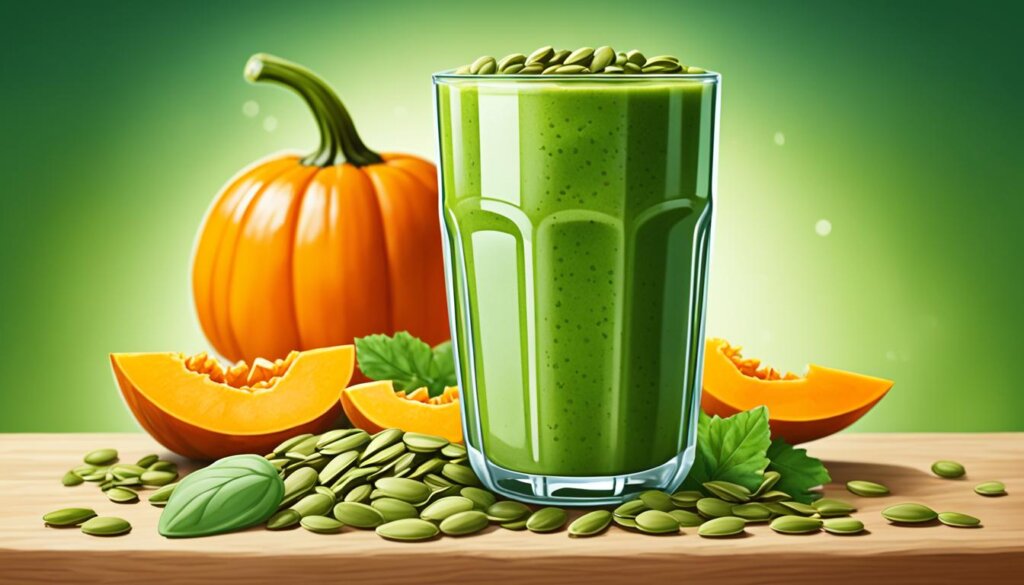
Incorporating Plant-based Protein into Your Diet
Adding more plant-based protein to your meals and snacks is easy and good for your health. Start your day with a protein-packed smoothie. Use plant protein powder, nut butter, and fruits or veggies. Try a big salad or grain bowl with beans, lentils, tofu, or edamame for lunch.
Try meatless alternatives like veggie burgers, lentil bolognese, or tasty stir-fries with tofu or tempeh at dinner. Snack on nuts, seeds, hummus with veggies, or plant-based protein bars. Eating more plant proteins gives you energy and helps your health.
The U.S. Department of Agriculture’s online nutrition calculator helps you determine your protein needs. It’s important to balance your protein intake with healthy fats and carbs. Dr. Columbus Batiste suggests the “bowl method” for a healthy diet. This includes whole grains, legumes, veggies, and various sauces or flavorings.
Be careful with prepackaged plant-based protein items. They can contain a lot of sodium, saturated fat, and sugar. Choosing whole, less processed plant-based protein sources provides more nutrition and health benefits.
“Plant-based protein sources like beans and lentils are low in saturated fat and sodium, making them a better protein ‘package’ for heart health.”
Adding more plant-based protein to your diet is easy and good for your health. With some creativity and focus on whole, nutrient-rich plant protein sources, you can have tasty and filling high-protein plant-based meals all day.
Addressing Common Concerns
Complete Proteins
Many worry that plant-based proteins give us all the amino acids we need. Some plants alone don’t have all the amino acids. But eating different plant-based protein sources like beans, grains, nuts, and soy can help. Studies show that vegans and vegetarians often get enough protein and amino acids. Eating a varied plant-based diet makes getting enough protein without animal products easy.
There’s much talk about plant proteins’ amino acid profile. Research says mixing different plant sources can make complete plant proteins. Experts say eating a mix of plant-based protein sources helps get all the amino acids your body needs.
Some worry about plant-based diet concerns, but you can meet your protein and amino acid needs with good planning. Knowing about the amino acid profile of plant proteins and eating various plant-based protein sources helps. This way, you can enjoy a plant-based diet without missing out on nutrition.
A complete plant-based diet gives you all the amino acids your body needs for muscle growth, repair, and health. With some knowledge and planning, adding plant-based protein to your life is easy. It brings many benefits.
Environmental Impact of Plant-based Protein
Choosing plant-based proteins over animal proteins is good for the planet. It uses less water and land than raising animals. It also causes much less pollution that harms our climate. In fact, animal foods produce twice as much greenhouse gases as plant foods.
The United Nations said in 2019 that eating less animal protein is key to saving the planet. Just adding more plant-based foods to your meals can help. It cuts down on your carbon footprint and saves natural resources.
Impact Metric | Animal-based Protein | Plant-based Protein |
|---|---|---|
Land Use | 4 billion hectares | 1 billion hectares |
Greenhouse Gas Emissions | Twice that of plant-based | Half of animal-based |
Water Scarcity | Significant, especially in beef production | Substantially lower |
Plant-based proteins are better for the planet. If everyone ate more plants, we’d use less land, from 4 to 1 billion hectares. This change helps fight climate change and keeps our planet safe for the future.
“Mitigating risks and capturing opportunities in the future of alternative proteins is of interest.”
Conclusion
Plant-based proteins are great for your health and the planet. Eating more beans, lentils, nuts, seeds, and soy can help you get enough protein. It also lowers your risk of chronic diseases and helps the environment. Adding more plant-based proteins to your meals is a good choice for your body and the planet. With many tasty and healthy options, now is a great time to try plant-based protein and switch to a plant-based diet.
The benefits of plant-based protein are clear. They are a sustainable, diverse, and often cheaper source of protein, which supports your health and well-being. By trying different plant-based proteins, you can ensure you get all the amino acids your body needs. Plant-based proteins also have a lower environmental impact than animal-based ones, making them better for the planet.
If you’re new to plant-based eating or already love it, many tasty and healthy options exist. You can try everything from pulses and whole grains to nuts and seeds. Choosing a plant-based protein is a big step towards a healthier, more sustainable future for you and the planet.
FAQ
What is plant-based protein?
Plant-based proteins come from veggies, grains, legumes, nuts, and seeds. They don’t come from animals like meat or dairy. Foods like beans, lentils, tofu, and nuts are examples.
What are the benefits of plant-based protein?
Eating plant proteins is good for your health and the planet. It can lower your risk of heart disease and some cancers. Plant proteins also use less water and land and produce fewer greenhouse gases than animal proteins.
What are some good plant-based protein sources?
Great plant-based proteins include beans, lentils, and quinoa. You can also eat tofu, nuts, and seeds. Foods like soybeans and quinoa have all the amino acids your body needs.
Can plant-based diets provide sufficient protein and amino acids?
Yes, you can get enough protein and amino acids from plants. Just mix different foods like beans, grains, and nuts into your diet. Studies show vegans and vegetarians often get enough protein and amino acids.
What is the environmental impact of plant-based protein?
Plant proteins are better for the planet. They need less water and land than animal proteins, and they produce fewer greenhouse gases. Eating more plant-based foods helps reduce one’s carbon footprint and save resources.
